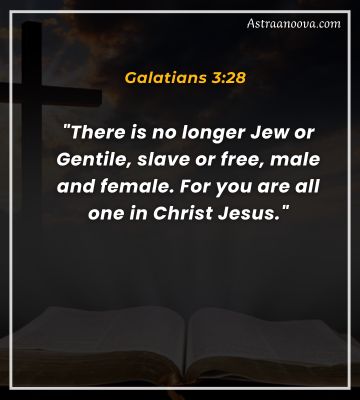Biblical hospitality transcends mere social courtesy, representing a profound spiritual practice that lies at the heart of Christian faith. This comprehensive exploration delves into the scriptural foundations of welcoming visitors, offering insights that challenge believers to transform their understanding of hospitality from a simple act of kindness to a powerful expression of divine love.
Through carefully examined biblical passages, we’ll uncover the spiritual significance of opening our hearts and homes to strangers, revealing how each act of hospitality can become a transformative encounter with God’s grace.
Welcoming Strangers
The biblical mandate for welcoming strangers emerges as a consistent and powerful theme throughout scripture, challenging believers to see beyond cultural boundaries and social norms.
Hebrews 13:2
“Don’t forget to show hospitality to strangers, for some who have done this have entertained angels without realizing it!”

This profound verse introduces a revolutionary concept of hospitality. It suggests that every stranger encountered might be a divine messenger, transforming an ordinary interaction into a potentially extraordinary spiritual experience. The imagery of unknowingly entertaining angels elevates hospitality from a mere social nicety to a sacred opportunity for divine encounter.
Leviticus 19:34
“Treat them like native-born Israelites, and love them as you love yourself. Remember that you were once foreigners living in the land of Egypt. I am the Lord your God.”
God’s command in Leviticus strikes at the heart of empathy and inclusion. By reminding the Israelites of their own history as foreigners in Egypt, this verse creates a powerful narrative of compassion. It challenges believers to remember their own experiences of vulnerability and extend the same kindness they would have desired when they were strangers.
Matthew 25:35
“For I was hungry, and you fed me. I was thirsty, and you gave me a drink. I was a stranger, and you invited me into your home.”

Christ’s personal identification with the marginalized becomes stunningly clear in this passage. Jesus dramatically reframes hospitality by declaring that welcoming strangers is tantamount to welcoming Him directly. This transformative teaching elevates hospitality from a social obligation to a spiritual practice of supreme importance.
Romans 12:13
“When God’s people are in need, be ready to help them. Always be eager to practice hospitality.”
The apostle Paul’s instruction introduces a proactive approach to hospitality. It’s not a passive waiting but an active, joyful pursuit of opportunities to serve and welcome others. The phrase “always be eager” suggests that hospitality should be a spontaneous and enthusiastic expression of faith.
1 Peter 4:9
“Cheerfully share your home with those who need a meal or a place to stay.”
Peter adds an essential dimension to hospitality the attitude of the heart. Cheerful giving transforms a potentially burdensome act into a genuine expression of love. It’s not just about the physical act of providing shelter or food, but doing so with genuine joy and openness.
Read Also : 40 Essential Bible Verses About Judging Others Wisely
The Blessings of Hospitality
Biblical teachings consistently reveal that hospitality is not a one-way street of giving, but a reciprocal spiritual practice that brings unexpected blessings to those who practice it.
Proverbs 11:25
“The generous will prosper; those who refresh others will themselves be refreshed.”

This verse unveils a spiritual economic principle that defies conventional understanding. Generosity is presented as a cycle of blessing, where giving becomes a conduit for receiving. The metaphor of refreshing suggests that hospitality is not just about material provision but about spiritual and emotional renewal.
Acts 20:35
“And I have been a constant example of how you can help those in need by working hard. You should remember the words of the Lord Jesus: ‘It is more blessed to give than to receive.'”
The profound wisdom in this verse challenges conventional thinking about generosity. Paul’s testimony transforms hospitality from a simple transaction into a spiritual practice of profound significance. By emphasizing the greater blessing found in giving, this passage reframes our understanding of service and generosity.
2 Corinthians 9:7
“You must each decide in your heart how much to give. And don’t give reluctantly or in response to pressure. ‘For God loves a person who gives cheerfully.'”
Divine perspective on giving emerges powerfully in this verse. The emphasis on personal choice and cheerful disposition reveals that hospitality is ultimately a matter of the heart. God values the motivation behind our actions more than the actions themselves, transforming hospitality from a mere external practice to an internal spiritual discipline.
Luke 6:38
“Give, and you will receive. Your gift will return to you in full—pressed down, shaken together to make room for more, running over, and poured into your lap. The amount you give will determine the amount you get back.”

Jesus’ promises here present a radical view of spiritual economics. The imagery of an overflowing measure suggests that hospitality operates on principles of supernatural multiplication. What might seem like a sacrifice becomes an opportunity for divine abundance.
Isaiah 58:7
“Share your food with the hungry, and give shelter to the homeless. Give clothes to those who need them, and do not hide from relatives who need your help.”
This Old Testament passage provides a tangible blueprint for practical hospitality. The prophet Isaiah moves beyond theoretical concepts, offering concrete ways to express compassion. It’s a holistic approach that encompasses physical needs, challenging believers to see hospitality as a comprehensive expression of love.
Welcoming Visitors in the Church
The Christian community represents a critical context for practicing biblical hospitality, challenging believers to create genuinely inclusive spaces that reflect divine love.
James 2:2-4
“For example, suppose someone comes into your meeting dressed in fancy clothes and expensive jewelry, and another comes in who is poor and dressed in dirty clothes. If you give special attention and a good seat to the rich person, but you say to the poor one, ‘You can stand over there, or else sit on the floor’—well, doesn’t this discrimination show that your judgments are guided by evil motives?”
James delivers a powerful rebuke to social discrimination within faith communities. This passage exposes the dangers of status-based hospitality, challenging believers to create spaces of radical equality that transcend social, economic, and cultural boundaries.
Romans 15:7
“Therefore, accept each other just as Christ has accepted you so that God will be given glory.”

The apostle Paul’s instruction presents acceptance as a glorifying act. Hospitality becomes more than a social nicety—it’s a way of reflecting divine acceptance and bringing glory to God through genuine welcome.
1 Corinthians 12:25-26
“This makes for harmony among the members, so that all the members care for each other. If one part suffers, all the parts suffer with it, and if one part is honored, all the parts are glad.”
This passage reveals the interconnected nature of the Christian community. Hospitality emerges as a mechanism for maintaining spiritual unity, where the well-being of each member impacts the entire community.
Galatians 3:28
“There is no longer Jew or Gentile, slave or free, male and female. For you are all one in Christ Jesus.”

This revolutionary verse dismantles every conceivable social barrier. Paul’s declaration presents a radical vision of spiritual equality that transcends cultural, social, and economic divisions. In the context of hospitality, this verse becomes a powerful mandate for creating truly inclusive faith communities that reflect the transformative power of Christ’s love.
3 John 1:5-6
“Dear friend, you are being faithful to God when you care for the traveling teachers who pass through, even though they are strangers to you. They have told the church here of your loving friendship. Please continue providing for such teachers in a manner that pleases God.”
The apostle John offers a specific dimension of hospitality supporting those engaged in spiritual ministry. This passage elevates hospitality beyond personal comfort, presenting it as a critical form of supporting God’s work and extending spiritual care to those dedicated to spreading the gospel.
Examples of Hospitality in the Bible
Biblical narratives provide powerful illustrations of hospitality that transcend cultural and historical contexts, offering timeless lessons of divine encounter and human compassion.
Genesis 18:1-5
“The Lord appeared again to Abraham near the oak grove belonging to Mamre. One day Abraham was sitting at the entrance to his tent during the hottest part of the day. He looked up and noticed three men standing nearby. When he saw them, he ran to meet them and welcomed them, bowing low to the ground. ‘My lord,’ he said, ‘if it pleases you, stop here for a while. Rest in the shade of this tree while water is brought to wash your feet. And since you’ve honored your servant with this visit, let me prepare some food to refresh you before you continue on your journey.'”
Abraham’s hospitality stands as a profound example of welcoming strangers. In the scorching heat of Mamre, he goes beyond mere politeness, offering comprehensive care shade, water, rest, and food. The narrative reveals that these “men” were divine messengers, suggesting that extraordinary spiritual encounters often emerge from ordinary acts of kindness.
1 Kings 17:10-16
“So he went to Zarephath. As he arrived at the gates of the village, he saw a widow gathering sticks, and he asked her, ‘Would you please bring me a little water in a cup?’ As she was going to get it, he called to her, ‘Bring me a bite of bread, too.’ But she said, ‘I swear by the Lord your God that I don’t have a single piece of bread in the house. And I have only a handful of flour left in the jar and a little cooking oil in the bottom of the jug. I was just gathering a few sticks to cook this last meal, and then my son and I will die.’ But Elijah said to her, ‘Don’t be afraid! Go ahead and do just what you’ve said, but make a little bread for me first. Then use what’s left to prepare a meal for yourself and your son. For this is what the Lord, the God of Israel, says: There will always be flour and olive oil left in your containers until the time when the Lord sends rain and the crops grow again!'”
The story of Elijah and the widow of Zarephath presents a profound demonstration of sacrificial hospitality. Despite having almost nothing, the widow shares her last resources with the prophet. Her act of faith results in a miraculous provision that sustains her family through a severe drought.
2 Kings 4:8-10
“One day Elisha went to the town of Shunem. A wealthy woman lived there, and she urged him to come to her home for a meal. After that, whenever he passed that way, he would stop there for something to eat. She said to her husband, ‘I am sure this man who stops in from time to time is a holy man of God. Let’s build a small room for him on the roof and furnish it with a bed, a table, a chair, and a lamp. Then he will have a place to stay whenever he comes by.'”
Elisha’s encounter in Shunem reveals another dimension of hospitality creating dedicated spaces for spiritual leaders. The Shunammite woman’s thoughtful preparation goes beyond a simple meal, demonstrating a deep respect and practical support for God’s servants.
Luke 10:38-42
“As Jesus and the disciples continued on their way to Jerusalem, they came to a certain village where a woman named Martha welcomed him into her home. Her sister, Mary, sat at the Lord’s feet, listening to what he taught. But Martha was distracted by the big dinner she was preparing. She came to Jesus and said, ‘Lord, doesn’t it seem unfair to you that my sister just sits here while I do all the work?’ But the Lord said to her, ‘My dear Martha, you are worried and upset over all these details! There is only one thing worth being concerned about. Mary has discovered it, and it will not be taken away from her.'”
This narrative introduces a nuanced perspective on hospitality. Martha and Mary represent two approaches to welcoming Jesus one focused on practical service, the other on spiritual presence. Christ’s response elevates spiritual attentiveness over mere physical preparation, suggesting that true hospitality involves more than just material provisions.
Acts 16:14-15
“One of them was Lydia from Thyatira, a merchant of expensive purple cloth, who worshiped God. As she listened to us, the Lord opened her heart, and she accepted what Paul was saying. She and her household were baptized, and she asked us to be her guests. ‘If you agree that I am a true believer in the Lord,’ she said, ‘come and stay at my home.’ And she urged us until we agreed.”
Lydia’s hospitality in Thyatira demonstrates the early Christian practice of welcoming believers. Her invitation becomes a tangible expression of newfound faith, showing how hospitality can be a powerful testament to spiritual transformation.
Hospitality Reflecting God’s Love
Hospitality emerges as a tangible manifestation of divine love, providing a practical pathway for believers to express God’s character.
1 John 4:19
“We love each other because he loved us first.”

This concise verse reveals the foundational principle of Christian love. Our capacity for hospitality stems directly from experiencing God’s unconditional love, transforming our interactions from mere social exchanges to profound spiritual expressions.
John 13:34-35
“So now I am giving you a new commandment: Love each other. Just as I have loved you, you should love each other. Your love for one another will prove to the world that you are my disciples.”
Jesus presents love as the defining characteristic of discipleship. Hospitality becomes a visible demonstration of this love, offering tangible proof of spiritual transformation to a watching world.
1 Corinthians 13:1
“If I could speak all the languages of earth and of angels, but didn’t love others, I would only be a noisy gong or a clanging cymbal.”
Paul’s powerful metaphor emphasizes that actions without love are meaningless. Hospitality divorced from genuine care becomes an empty gesture, highlighting the critical importance of heart motivation in welcoming others.
Colossians 3:14
“Above all, clothe yourselves with love, which binds us all together in perfect harmony.”

Love is presented as a unifying force that transcends cultural, social, and personal differences. Hospitality becomes a practical application of this binding love, creating spaces of genuine connection and mutual understanding.
1 Peter 1:22
“You were cleansed from your sins when you obeyed the truth, so now you must show sincere love to each other as brothers and sisters. Love each other deeply with all your heart.”
The apostle Peter calls for a depth of love that goes beyond surface-level interactions. Hospitality is transformed from a casual welcome to a deep, intentional practice of spiritual brotherhood and sisterhood.
The Call to Serve Others
The biblical narrative consistently presents hospitality as a profound expression of service, challenging believers to move beyond personal comfort and embrace a lifestyle of sacrificial love.
Matthew 20:28
“For even the Son of Man came not to be served but to serve others and to give his life as a ransom for many.”

Christ’s ultimate example of service provides the foundational model for Christian hospitality. This verse reveals that true welcome is not about receiving but about giving, mirroring the sacrificial nature of Jesus’ own ministry.
Galatians 5:13
“For you have been called to live in freedom, my brothers and sisters. But don’t use your freedom to satisfy your sinful nature. Instead, use your freedom to serve one another in love.”
Paul transforms the concept of spiritual freedom into a call for active service. Hospitality becomes a manifestation of this freedom a choice to prioritize others’ needs above personal convenience.
Philippians 2:4
“Don’t look out only for your own interests, but take an interest in others, too.”
This instruction challenges the natural human tendency toward self-centeredness. Hospitality emerges as a practical pathway to genuine other-centered living, requiring intentional effort and spiritual maturity.
1 Timothy 6:18
“Tell them to use their money to do good. They should be rich in good works and generous to those in need, always being ready to share with others.”

The apostle Paul’s guidance extends hospitality beyond physical space to include financial generosity. It presents a holistic view of welcome that encompasses material support and spiritual care.
Mark 9:35
“He sat down, called the twelve disciples over to him, and said, ‘Whoever wants to be first must take last place and be the servant of everyone else.'”
Jesus radical redefinition of greatness becomes a cornerstone of Christian service. Hospitality is transformed from a optional practice to a fundamental expression of spiritual leadership.
What Does the Bible Say About Welcoming Visitors
Biblical hospitality represents more than a social convention it is a profound spiritual practice that reflects God’s character of love, inclusion, and grace. Throughout scripture, welcoming visitors emerges as a consistent theme that challenges believers to see beyond cultural boundaries and personal comfort.
The biblical narrative consistently reveals that hospitality is a two-way street of spiritual transformation. When believers open their hearts and homes, they create spaces for divine encounters that transcend ordinary human interactions. From Abraham’s welcome to strangers at Mamre to Lydia’s invitation in Thyatira, these scriptural accounts demonstrate that every act of hospitality carries potential for extraordinary spiritual significance.
Moreover, biblical hospitality is deeply rooted in empathy and remembrance. The command to love strangers is often accompanied by a reminder of the community’s own experiences of vulnerability. The Israelites were instructed to remember their time as foreigners in Egypt, transforming their potential fear of the unknown into a compassionate welcome.
Conclusion
Biblical hospitality stands as a powerful testament to the transformative power of love. It is far more than a social nicety or cultural practice it is a profound spiritual discipline that reflects the very nature of God’s love. Through welcoming strangers, believers participate in a sacred practice that has the power to break down barriers, provide comfort to the vulnerable, and create spaces of divine encounter.
The biblical mandate for hospitality challenges us to move beyond our comfort zones, to see every stranger as a potential messenger of God, and to approach every interaction with openness, generosity, and love. It is a call to reflect Christ’s love in the most practical and transformative ways possible.
As believers embrace this calling, they discover that hospitality is not about perfection, but about genuine connection. It’s about creating spaces where love can flourish, where strangers become friends, and where the divine can intersect with the ordinary in extraordinary ways.
FAQ’s
What is the scripture for welcome at church?
Hebrews 13:2 provides the most compelling scripture, encouraging believers to welcome strangers who might unknowingly be divine messengers.
What is a good welcome verse for guests?
Romans 15:7 offers an excellent welcome verse: “Accept one another, just as Christ has accepted you, to bring praise to God.”
What does Jesus say about welcoming?
In Matthew 25:35, Jesus directly connects welcoming strangers with serving Him: “I was a stranger, and you invited me into your home.”
How do I welcome people to church?
Practice inclusive hospitality by creating warm environments, offering personal greetings, demonstrating genuine interest, and making newcomers feel valued and comfortable.
What is a short welcome message for church members?
“We’re delighted you’re here today. Our community celebrates your unique presence and looks forward to connecting with you.”
What is an inspirational quote for a church?
1 Peter 4:9 provides an inspiring directive: “Cheerfully share your home with those who need a meal or a place to stay.”
What is the religious welcome quote?
Galatians 3:28 offers a powerful inclusive welcome: “There is no longer Jew or Gentile, slave or free, male and female. For you are all one in Christ Jesus.”
What is Ephesians 2:19?
“So now you Gentiles are no longer strangers and foreigners. You are citizens along with all of God’s holy people. You are members of God’s family.”

Multilingual faith educator exploring connections between language, spirituality, and dream symbolism.


















